Mold In an Apartment – San Diego CA
If you’re experiencing mold in an apartment, you’re probably wondering who is to blame. Is it your landlord’s negligence, or are you inadvertently causing the problem? In this article, we will unmask the culprit and help you understand who bears responsibility for mold in an apartment.
Mold can thrive in damp, dark environments, and apartments are no exception. Some common causes of mold growth include leaking pipes, poor ventilation, and excessive moisture due to improper maintenance. However, determining who is at fault can be a complex task.
If you suspect that the mold is a result of your landlord’s failure to maintain the property adequately, there are certain steps you can take. Familiarize yourself with your rights as a tenant, document the problem thoroughly, and communicate your concerns to your landlord in writing.
However, it’s also important to understand that you may be contributing to the mold in an apartment through your own habits. Failing to properly ventilate your apartment, leaving wet towels or clothes lying around, or not promptly reporting plumbing issues can all contribute to mold growth.
By understanding the possible causes and taking the appropriate actions, you can address the mold issue effectively and ensure a safe and healthy living environment in your apartment.
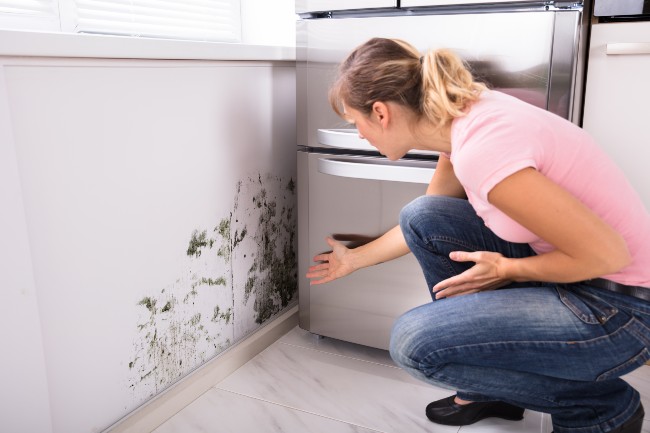
Health risks associated with mold exposure
Mold is not just an unsightly nuisance; it can also pose serious health risks. Exposure to mold can lead to various health issues, including respiratory problems, allergies, and even infections. Some people are more sensitive to mold than others, and prolonged exposure can exacerbate their symptoms. It is crucial to address mold growth promptly to safeguard your health and well-being.
Who Is the Culprit for Mold In an Apartment – Landlord or Tenant?
Determining who is the culprit for mold in an apartment can be a complex task. In general, the responsibility for maintaining a safe and habitable living environment falls on the landlord. Landlords have a duty to ensure that their properties are free from hazards, including mold. This means they must address any underlying causes of mold growth, such as leaking pipes or poor ventilation.
Yet, as tenants, there’s a part to play in averting mold development. By not adequately ventilating your space, letting damp towels or garments linger, or overlooking plumbing concerns, you might unknowingly foster mold. Recognizing and acting upon your duties as a tenant is crucial to ensure mold doesn’t become an issue.
Legal implications and tenant rights regarding mold
As a tenant, you have certain rights when it comes to mold in an apartment. The exact laws and regulations vary depending on your location, but many jurisdictions have specific provisions that protect tenants from mold-related issues. These laws often require landlords to address mold problems promptly and adequately.
If you suspect that the mold in anapartment is a result of your landlord’s failure to maintain the property adequately, you may have legal recourse. Familiarize yourself with your local tenant laws and regulations, and consult with a legal professional if necessary. Understanding your rights can empower you to take appropriate action and hold your landlord accountable for mold-related issues.
Steps to Take if you Discover Mold in an Apartment
If you discover mold in your apartment, it is crucial to take immediate action. Here are some steps you can take to address the issue effectively:
- Document the problem: Take photographs or videos of the mold growth, documenting the extent of the problem. This evidence will be useful if you need to escalate the issue with your landlord or legal authorities.
- Communicate your concerns: Notify your landlord in writing about the mold problem, detailing the location and extent of the growth. Be sure to keep a copy of the communication for your records.
- Seek professional help: Consider consulting with a mold remediation specialist to assess the severity of the problem and provide recommendations for remediation. Their expertise can help you understand the underlying causes and develop a plan for effective mold removal.
By following these steps, you can ensure that the mold issue is properly addressed and minimize any potential health risks.
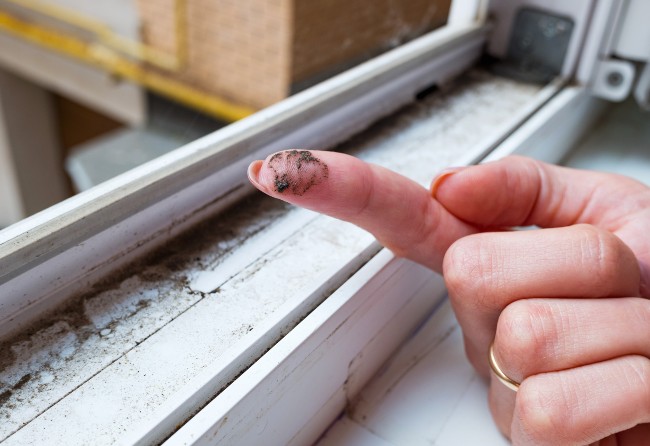
Preventing Mold Growth in your Apartment
Prevention is key when it comes to mold in an apartment. Here are some proactive measures you can take to minimize the chances of mold becoming a problem:
- Proper ventilation: Ensure that your apartment is adequately ventilated. Open windows regularly to promote air circulation, especially in areas prone to moisture buildup, such as bathrooms and kitchens.
- Control moisture levels: Keep humidity levels in check by using dehumidifiers or air conditioners. Be mindful of activities that generate moisture, such as cooking or showering, and take steps to minimize excess moisture buildup.
- Promptly address plumbing issues: Report any plumbing leaks or water damage to your landlord immediately. Timely repairs can prevent mold growth from occurring or spreading.
- Regular cleaning: Keep your apartment clean and dry. Regularly clean and dry wet surfaces, including countertops, sinks, and bathroom fixtures. Don’t forget to clean and dry any spills or leaks promptly.
By adopting these preventive measures, you can significantly reduce the risk of mold growth in your apartment and create a healthier living environment for yourself.
Mold remediation and professional services
In some cases, mold growth may be extensive or difficult to address without professional help. Mold remediation specialists have the knowledge, expertise, and equipment to effectively remove mold and prevent its recurrence. If you’re dealing with a severe mold problem or have concerns about proper remediation, consider hiring a professional mold remediation service. They can assess the situation, develop a comprehensive plan, and ensure that the mold is safely and completely removed.
Common misconceptions about mold in apartments
There are several misconceptions surrounding mold in an apartment that can lead to confusion and misunderstandings. Let’s debunk some of these common myths:
- Mold is only a problem in old or poorly maintained buildings: Mold can occur in any building, regardless of its age or condition. Even well-maintained apartments can develop mold if certain conditions are present.
- All mold is dangerous: While some mold species can be harmful, not all molds pose immediate health risks. However, it is prudent to address any mold growth promptly to prevent potential health issues.
- Bleach can effectively remove mold: Bleach may appear to eliminate mold on surfaces temporarily, but it does not address the underlying cause or prevent mold from recurring. Professional remediation is necessary for thorough mold removal.
Understanding these misconceptions can help you make informed decisions and take appropriate action when dealing with mold in an apartment.
Insurance coverage for mold-related damages
Insurance coverage for mold-related damages can vary widely. Standard renter’s insurance policies typically do not cover mold damage or remediation costs. However, some insurance companies offer optional endorsements or separate policies specifically designed to cover mold-related issues. Review your insurance policy carefully and consider discussing your coverage options with your insurance provider. It is essential to understand the terms and limitations of your policy to ensure you have adequate protection in the event of mold-related damages.
Who Is the Culprit for Mold in an Apartment?
Unmasking the culprit responsible for mold in an apartment is not always a straightforward task. While landlords have a duty to maintain a safe and habitable living environment, tenants also play a role in preventing mold growth. By understanding the possible causes, knowing your rights, and taking appropriate actions, you can address mold issues effectively and ensure a safe and healthy living environment in your apartment. Remember, prompt action is crucial when dealing with mold. Don’t hesitate to seek professional help if needed, as your health and well-being should always be a top priority.


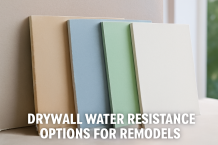

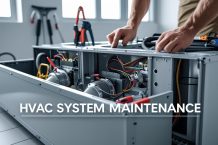
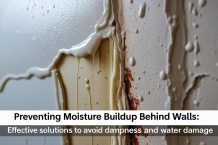







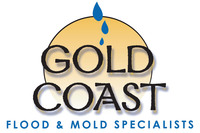


Follow Us!